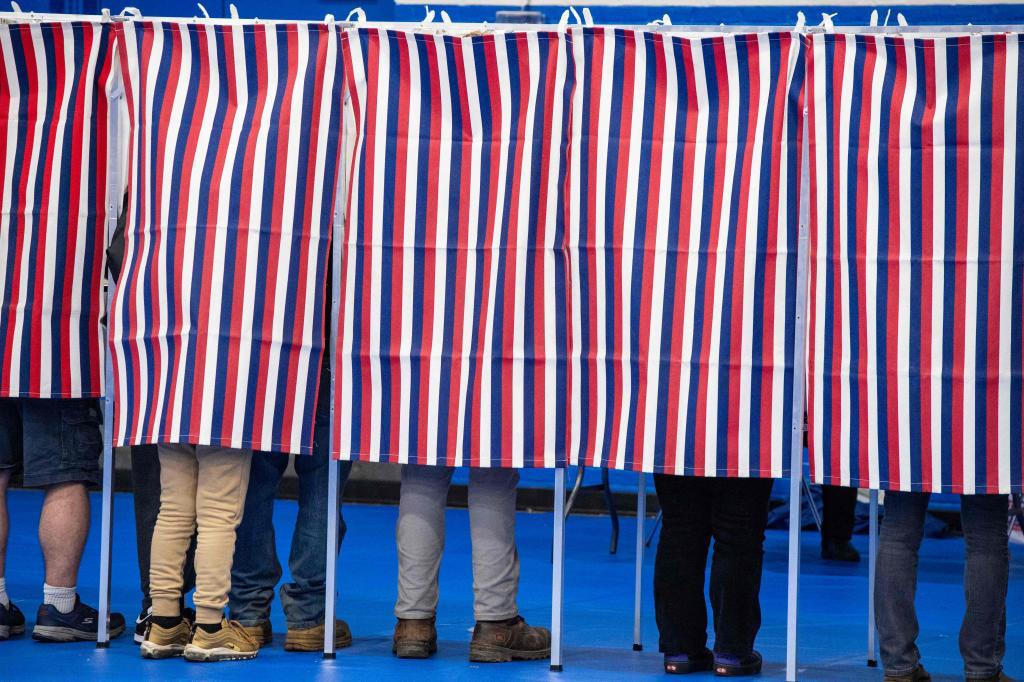The elections in the United States have become such a long process that people involved in them - politicians, advisors, volunteers, and journalists - referred to November 5th not as "election day," but as "the last day of voting".
In some states, voting has been going on for almost two months, and in the last three weeks, voter turnout has been massive across most of the country.
And these three weeks have been like an endless election night for the campaigns. Yesterday, the atmosphere among Kamala Harris' team in Washington was moderately optimistic, but not much, primarily because the polls are extremely tight, and secondly, because they still live under the post-traumatic stress syndrome of Hillary Clinton's defeat in 2016 when they thought they had the elections won.
The campaign, these sources said, had bet "all or nothing" on Pennsylvania, the state that will decide who wins the elections. And the results, they said, were hopeful. "We have placed our hope of victory in the hands of white women, and it is working," said a campaign person.
That statement was also a jab at another segment of Harris' team, which advocated for a greater effort in mobilizing minorities and young people. In fact, the data from Pennsylvania seems to indicate low turnout among African Americans (who vote for Democrats over 90%) and Latinos (who do so around 70%). This has upset the Democratic left, who has always preferred Joe Biden over Kamala Harris, whom they see as an opportunist without principles and with political instincts close to big corporations, in stark contrast to the union sympathies of the current president.
But from a purely tactical point of view, perhaps that is working. "Even among women over 65, a decline in popular support for Donald Trump is being detected," Harris' loyalists insist. This is very important, because Trump's big voting base is retirees. The vice president's campaign attributes some of the most outrageous promises of the Republican candidate in recent days precisely to the fear of losing the retiree vote. The promise to eliminate income tax on pensions is the clearest example of this, according to that theory.
Harris' team also sees Trump's last day of campaigning as a sign of his weakness. The former president had to spend part of the last precious hours at a rally in North Carolina, one of the most favorable states for him among those deciding the elections, and the only one of the seven in that group where he won in 2016 and 2020. "For Trump to have to spend time in North Carolina is a clear sign of weakness," they argue.
On the ex-president's team, the euphoria of recent weeks has been tempered. But they still believe that the elections are in the bag. "Polls are always wrong because they are part of a conglomerate intended to favor Democratic candidates. And this time, the support for Trump is so great that they cannot, no matter how much they distort the data, prevent the president [Trump's followers never use the prefix "ex" before the position he held from 2017 to 2021] from being on par with Harris. This means he could actually be three or four points ahead in the popular vote."
The same person flatly rejects the evidence of low turnout at Trump's recent rallies in North Carolina, Michigan, and Pennsylvania. "There are empty spaces because many people have already voted. On the contrary, Harris' events are full because people go to see if they can be convinced," they state. In 2016, and especially in 2020, Trump told his supporters not to vote early or send in mail-in ballots. This obsession that he did not apply to himself - since he did vote by mail - cost him the elections, according to his team's consensus. This time, he has changed his mind 180 degrees on this and has urged his supporters to vote by mail and do so early.
Finally, Trump's campaign downplays the importance of the rallies in North Carolina, defending them as something idiosyncratic to the president. "In 2016, he ended the campaign with a dawn rally in Virginia, a state where he was behind in all polls and where he lost. Last week, he had an event in New Mexico, where a Republican has not won in decades but he took the opportunity to address the Hispanic audience. Trump is strategic and unpredictable. His moves confuse his rivals. But in the end, they have to acknowledge that the president is far ahead of everyone in planning the campaign."
